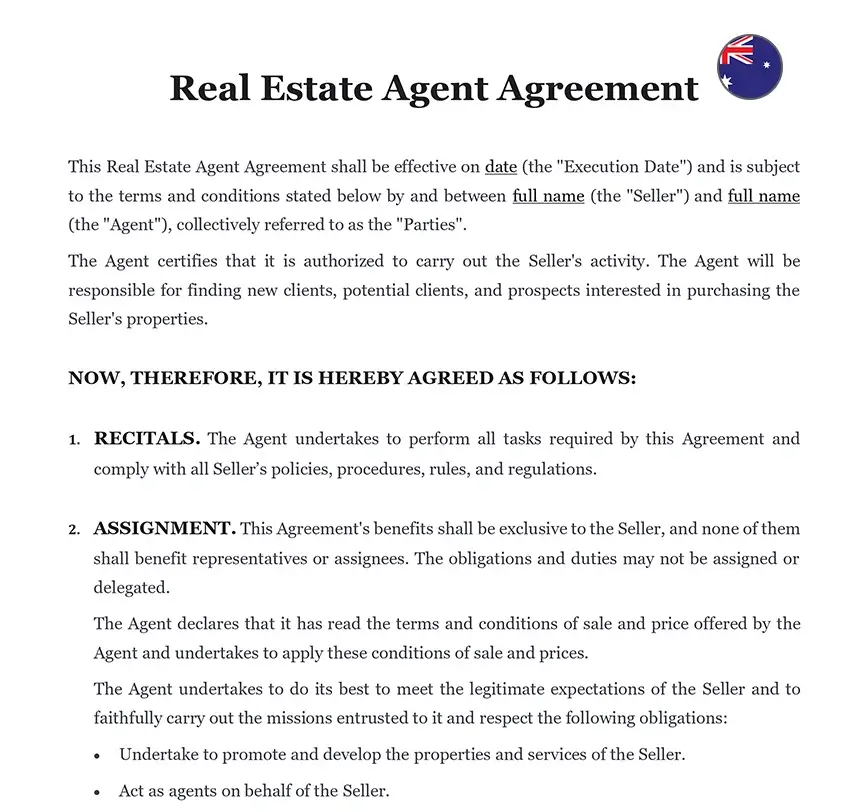The Importance of a Real Estate Agent Agreement
When hiring a property agent, having a clear and detailed real estate agent agreement is crucial. This document outlines the terms and conditions of the relationship between you and the agent, ensuring that both parties understand their obligations and rights. This guide will provide you with essential legal advice for hiring a property agent in Australia, with a focus on the significance of the real estate agent agreement.
Understanding the Role of a Property Agent
A property agent, also known as a real estate agent, plays a vital role in the buying, selling, and renting of properties. Understanding their responsibilities can help you choose the right agent and establish a productive working relationship.
1. Market Knowledge: Agents have in-depth knowledge of the property market, including current trends, property values, and neighborhood insights. They can provide valuable advice on pricing, marketing strategies, and timing.
2. Negotiation Skills: Property agents are skilled negotiators who can help you get the best deal whether you’re buying or selling. They handle negotiations with potential buyers, sellers, landlords, or tenants.
3. Administrative Tasks: Agents manage various administrative tasks such as preparing legal documents, organizing property viewings, and coordinating with other professionals like inspectors and lawyers.
Selecting the Right Property Agent
Choosing the right property agent is critical to a successful real estate transaction. Here are some factors to consider:
1. Experience and Expertise: Look for agents with extensive experience and expertise in the type of property you’re dealing with. Check their track record, client testimonials, and professional credentials.
2. Local Knowledge: An agent with local knowledge can provide insights into neighborhood amenities, market conditions, and potential future developments. They are better positioned to market your property effectively or find suitable properties for you.
3. Communication Skills: Effective communication is essential for a smooth transaction. Choose an agent who listens to your needs, provides clear and timely updates, and is easily reachable.
Drafting the Real Estate Agent Agreement
The real estate agent agreement is a legally binding document that outlines the terms of the agent-client relationship. It’s important to ensure that this agreement is comprehensive and clear.
1. Key Components: The agreement should include the agent’s duties, commission structure, duration of the contract, and any specific terms related to the property transaction. Specify the scope of services, including marketing efforts, property showings, and negotiations.
2. Legal Review: Have the agreement reviewed by a legal professional to ensure it complies with local laws and regulations. This can prevent potential disputes and misunderstandings.
3. Termination Clause: Include a termination clause that outlines the conditions under which the agreement can be terminated by either party. This provides a clear exit strategy if the relationship is not working out.
Understanding Agent Fees and Commissions
Agent fees and commissions are a significant aspect of the real estate agent agreement. Understanding how these are structured can help you budget effectively and avoid surprises.
| ➤ Commission Rates: Commissions are typically a percentage of the property's sale price or rental income. Rates can vary based on the agent's experience, the complexity of the transaction, and local market conditions. |
| ➤ Additional Fees: Be aware of any additional fees that may be charged, such as marketing expenses, administrative costs, or travel expenses. Ensure these are clearly outlined in the agreement. |
| ➤ Negotiating Fees: Don't hesitate to negotiate commission rates and fees. Discussing these upfront can lead to a mutually beneficial agreement and avoid potential conflicts later. |











